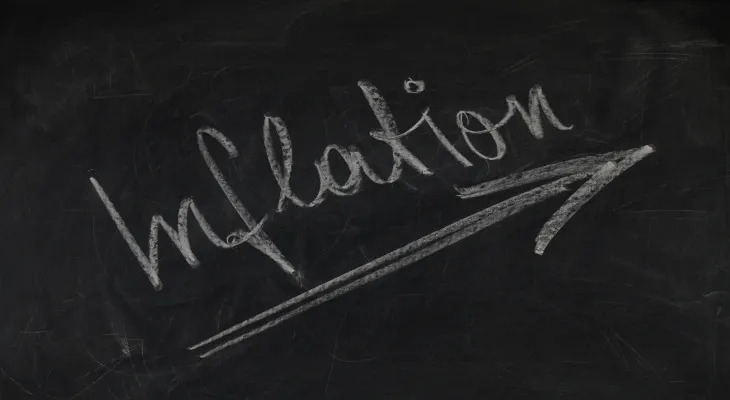Search here
Newspaper
Search here

Arab Canada News
News

Published: June 9, 2022
Liberals have several options to provide the needed relief to families feeling the most pressure.
In Tuesday’s session, referring to a new survey indicating that a quarter of Canadians are eating less due to food costs, and amid ongoing inflation debates, Bergen asked whether the Liberal government was ready to agree with Conservative proposals to ease some of the rising costs currently facing Canadians.
In response, Freeland pointed to ways the spring budget has bolstered support for Canadians: expanding Canada Workers Benefit, increasing Old Age Security, and a one-time $500 increase in the Canada Housing Benefit.
Bergen rejected such measures, describing them as "a small amount of slow help" that "might trickle through the mail."
Bergen said: "Liberals are so out of touch that they don’t understand gas prices, don’t understand rising food prices, and don’t understand long lineups. They don’t understand what Canadians are going through and don’t care."
Freeland said: "What is out of touch is someone living in government housing with a rent of $2300 for a family of three; such a low wage is insufficient under this situation."
It was a rare opportunity for the Liberals to respond and try to find solutions in the spring session, during which they faced—and largely resisted—persistent calls to do something in direct response to inflation and rising cost of living.
With only two weeks remaining before the House of Commons recesses for summer, it is unlikely that the Liberals will respond to those calls before fall.
But if inflation remains strong when the House returns, the Liberals may have to do more.
The Liberals argued that recent inflation is a global phenomenon, largely driven by the pandemic and the Russian attack on Ukraine. In response to cost-of-living concerns, they pointed to long-term measures such as expanding access to more affordable childcare and new supported care plans.
Of course, the Bank of Canada is also taking steps to curb inflation, largely through higher interest rates.
But knowing that COVID-19 and Vladimir Putin are to blame may not make it easy for voters to accept higher gas prices – and that is the very tangible issue on which the Conservatives have focused their efforts.
A proposal put forward by the Conservatives to the House on Tuesday called on the government to suspend applying the goods and services tax on gasoline and diesel sales and to suspend the carbon tax. Several provinces—including Alberta and Ontario—have moved to cut their own gas taxes.
The political purpose of these tax cuts is clear. Their practical benefit is debatable. High-income households tend to consume more fuel, so cutting gas taxes is more likely to disproportionately benefit those who are already better positioned to handle rising costs.
Calls to suspend or cancel the carbon tax tend to avoid the fact that nearly all revenues from the tax are returned to households. Middle- and low-income households tend to receive more in carbon tax rebates than they pay in direct costs.
Limiting actions to reduce greenhouse gas emissions to address inflation would only be trading one problem for another.
In the same survey cited by Bergen on Tuesday, New Democratic Party leader Jagmeet Singh reminded Freeland that the NDP proposed imposing an "excess profits tax" on oil and gas companies and using these funds to double the goods and services tax credit and increase Canada Child Benefit payments by $500.
This is the point where the Liberals might find something they can work on—if they decide that more must be done.
For his part, Kevin Milligan, an economist at the University of British Columbia, said: "If I were to feel comfortable, I would focus on families struggling to cover their expenses, which won’t be a solution to price, but a solution to income, which would probably be some targeted income transfers to help people struggling to put food on the table."
David Macdonald, an economist at the Canadian Centre for Policy Alternatives, said: "But unlike broad tax cuts, doubling the goods and services tax credit would be more targeted and provide a much stronger impact for the people most affected because they spend more of their income on things, thus the impact of inflation is greater on them."
Milligan said a large and broad increase in income support could backfire if it worked to increase inflation, but the goods and services tax credit is targeted narrowly enough to avoid that kind of broader economic impact.
In a series of tweets late Tuesday, Freeland outlined different ways current federal policy could "mitigate" the impact of inflation.
There may be an argument to wait and see if it’s really necessary to take more action on inflation. Governments are not obligated to make rash decisions whenever an opposition party demands it. Doing something quickly just to say you did is not always the wisest path.
But waiting to take deliberate, low-risk action could be the solution. Because if the Liberals do boost child benefits or the goods and services tax credit this fall, the first question from opposition parties—and perhaps some voters—will be "why didn’t they do it sooner?"
Edited by: Dima Abou Khair
Comments